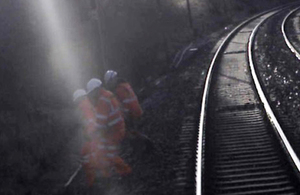The latest Operational Honours and Awards List has been published today. The list recognises the bravery, commitment and commendable service of service personnel within the military.
The serving personnel who have won from the array of awards and decorations have shown outstanding examples of courage and dedication to their work while on operation.
The service they have given to the country ensures that Britain remains ready to face intensifying threats at home and abroad.
The full list is below.
Commander of the Order of the British Empire (CBE)
Brigadier Simon Lea HUMPHREY OBE
Officer of the Order of the British Empire (OBE)
Commander Michael Gerard CARTER QUINN
Colonel Giles Richard HARRIS DSO MBE
Wing Commander Matthew David ROBERTS DFC
Member of the Order of the British Empire (MBE)
Lieutenant Colonel James Edward BATES, The Rifles
Flight Lieutenant Jonathan David SIMCOX, Royal Air Force
Queens Commendation for Valuable Service
Leading Medical Assistant Gemma BROWN, Royal Navy
Lieutenant Colonel Pier Lyndon ASHFIELD DSO, Grenadier Guards
Lieutenant Colonel Gordon FLETCHER, Royal Logistics Corps
Lieutenant Colonel Kevin John FORDE, Royal Tank Regiment
Captain Marcus James GILLAN, Corps of Royal Engineers
Major Andrew Scott HOUSTON, Royal Regiment of Artillery
Lieutenant Colonel Mark Stuart JONES MBE, Corps of Royal Engineers
Lance Corporal Claire MARTIN, Royal Army Medical Corps
Lieutenant Colonel Philip Charles MOXEY MBE, Royal Anglian Regiment
Captain Guy Keith PAGE, Adjutant General’s Corps
Corporal Nabin ROKA, Royal Gurkha Rifles
Captain James Harold THOMAS, Royal Corps of Signals
Group Captain James Philip BRAYSHAW, Royal Air Force
Group Captain Shaun HARRIS CBE, Royal Air Force
Wing Commander Howard Martin PARR, Royal Air Force
Flight Lieutenant Oliver James SARGENT, Royal Air Force
Queen’s Gallantry Medal
Leading Seaman David Michael GROVES, Royal Navy
Able Seaman Alex HARVEY, Royal Navy
Air Force Cross
Squadron Leader Lee Christian BROWN-AHERN, Royal Air Force
Mention in Dispatches
Squadron Leader Michael JONES, Royal Air Force
Flight Lieutenant Laurence SWIFT, Royal Air Force

